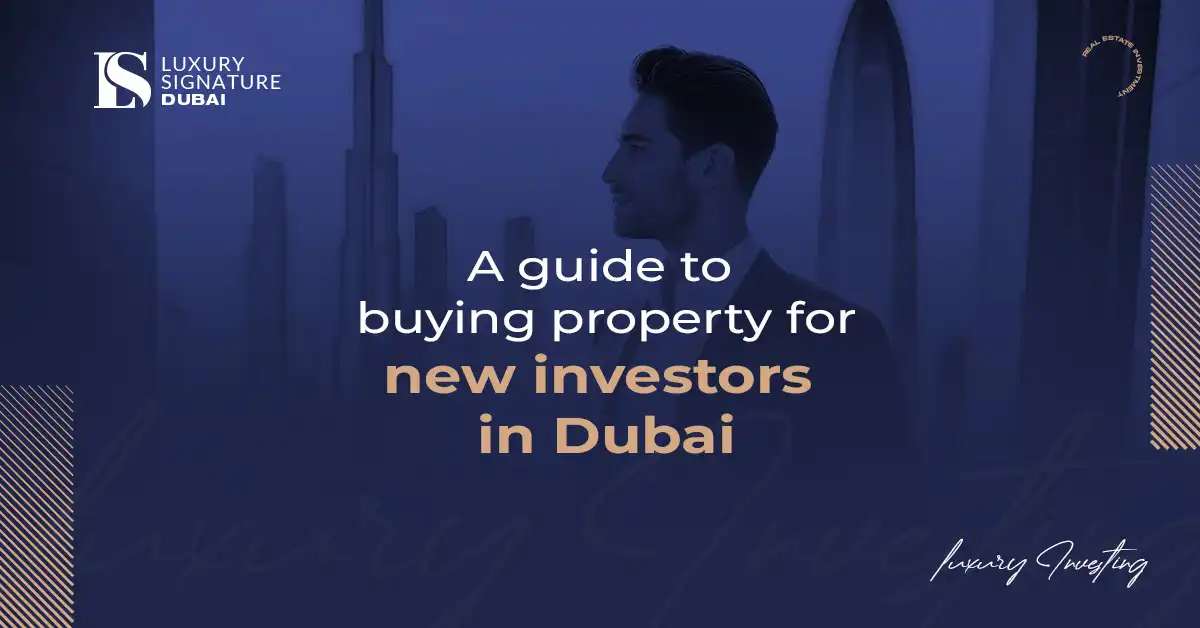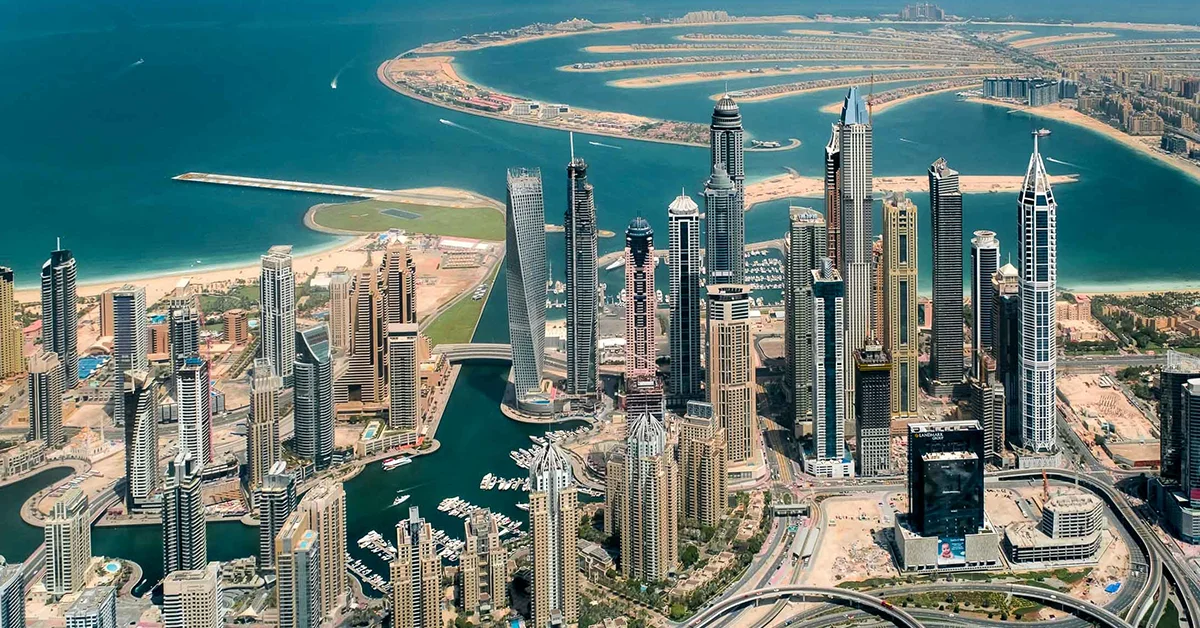
A guide to buying property for new investors in Dubai
Table of Contents
Dubai, known for its towering skyscrapers and pioneering real estate developments, offers promising investment opportunities for new investors. With a robust economy and well-developed infrastructure, Dubai remains an attractive destination for real estate investment. In this guide, we will outline the essential steps and valuable tips to ensure optimal returns on your real estate investments in this vibrant city.
Understanding the real estate market in Dubai
Before making any investment, it is crucial to comprehend the trends and mechanics of the local market. Dubai boasts a diverse market that includes residential and commercial real estate, as well as newly developed projects. The real estate market in Dubai has experienced numerous shifts, reaching peaks followed by periodic corrections, making timing and selection critically important.
To gain a thorough understanding of Dubai's real estate market, one must consider a variety of influencing factors. Here are some key points to understand this market:
- History and economic growth: Dubai has undergone rapid development in recent decades, transforming into a global economic and financial hub. The continuous economic growth in Dubai, driven by flexible economic policies and its strategic location, has significantly enhanced the attractiveness of the real estate market.
- Laws and regulations: Dubai features a real estate policy that allows foreigners to own property in carefully selected areas, contributing to increased foreign investments. Real estate laws are regularly updated to balance the interests of investors, developers, and the government.
- Diversity in property options: Dubai offers a wide range of property options, from luxurious apartments in high-rise towers to standalone villas and integrated residential communities, in addition to commercial properties like offices and retail spaces. This diversity provides multiple opportunities for investors based on their needs and investment goals.
- Local and global economic factors: Local economic factors, such as inflation rates and interest rates, influence real estate investment decisions. Additionally, global economic factors, such as oil prices and trade policies, play a significant role in shaping the dynamics of Dubai's real estate market.
- Future developments and major projects: The launch of major projects like Expo 2020 and Dubai's Smart City initiative boosts positive expectations about real estate market growth. These projects enhance infrastructure and attract more businesses and residents, increasing demand for properties.
- Demographic trends: The growing and culturally diverse population in Dubai plays a key role in stimulating demand for residential properties. Dubai's real estate market attracts both local residents and global expatriates seeking a blend of luxury living and great job opportunities.
- Climate change and environment: Dubai is also experiencing a growing interest in sustainable architecture and environmental practices, leading to a rising demand for residential and commercial properties that adhere to green building standards and renewable energy use.
By understanding these various aspects of Dubai's real estate market, new investors can make well-informed and strategic investment decisions to achieve the best possible returns.
Factors influencing Dubai's real estate market
- Local and international economy: Dubai heavily relies on foreign investments. Consequently, global economic policies have significant impacts on the local real estate market.
- Politics and regulations: The Dubai government offers various incentives such as golden visas for real estate investors, along with flexible property ownership regulations for foreigners, making ownership easier.
- Future developments: Large-scale future projects, such as the Expo 2020 site and ongoing research in smart city initiatives, enhance Dubai's attractiveness as an investment hub.

Choosing the right type of property for investment in Dubai's real estate market
The types of properties available for investment vary in terms of returns and risks. Common options include:
- Residential units: Often considered the safest and easiest investments to manage, especially apartments in high-rise buildings.
- Commercial properties: These include offices and retail spaces and typically offer higher rental yields.
- Land: Investing in land can yield high returns but carries higher risk and requires a deeper understanding of the market.
Promising areas for real estate investment in Dubai
Dubai is a city that offers diverse investment opportunities in real estate, thanks to its urban expansion and ongoing developments. Here are some promising areas that can be attractive to real estate investors:
- Dubai Marina: One of the most popular areas, known for its beautiful views and integrated facilities. Dubai Marina offers luxurious residential apartments and its proximity to the beach makes it a preferred choice for many investors and residents.
- Downtown Dubai: Home to the Burj Khalifa and Dubai Mall, this area is known for its massive shopping centers and world-famous landmarks. Investing in this area is ideal due to its high tourist appeal and strong investment opportunities.
- Business Bay: Considered a major business hub in Dubai, it features a diverse range of residential and office towers. Its close proximity to the city center and easy access to main roads make it an ideal location for both business and living.
- Jumeirah Village Circle (JVC): A residential area gaining increasing popularity among families and investors. JVC offers various amenities like schools and parks, along with more affordable prices compared to other areas.
- Mohammed Bin Rashid City: Part of Dubai's ambitious vision, this new city hosts a range of luxury projects focusing on sustainability and green spaces.
- Dubai South: A promising future site due to its proximity to Al Maktoum International Airport and Expo 2020. It features residential and commercial developments that make it an attractive point for long-term investments.
- Palm Jumeirah: As one of Dubai's iconic luxury projects, Palm Jumeirah offers investment opportunities in villas and high-end apartments with sea views.
- Culture Village (Al Jaddaf): A modern area rich in culture and arts, offering a mix of residential and commercial real estate targeting young professionals and cultural creatives.
- Dubailand: Includes numerous theme parks and residential communities, making it an appealing choice for family investments.
- Dubai Hills Estate: Dubai Hills Estate is part of a luxury mixed-use residential project in the city of Dubai. This massive project has been developed by Emaar Properties and Meraas Holding. Dubai Hills Estate spans a vast area and offers a diverse range of residential options, including villas, apartments, and townhouses.
All these areas hold significant potential for investment returns, and they vary in terms of costs and offerings. Therefore, thorough research and consultation with real estate experts are advisable before making purchase decisions in any of them.
Frequently asked questions
Yes, anyone of any nationality, whether residing in Dubai or abroad, can buy real estate in Dubai. It is not required to obtain any type of residence permit or other similar permit in order to buy real estate in Dubai. Contact us for more information.
Investors, homeowners and professionals, such as doctors and engineers, can obtain UAE residency visas valid for up to 10 years according to the law announced by the UAE government in May 2018. The current real estate visa represents a two-year renewable real estate investor visa issued by the Dubai Land Department to obtain freehold properties with a value of one million dirhams or more on the title deed.
Real estate agents assist with property searches, negotiations, and paperwork, ensuring a smooth buying or renting process.


